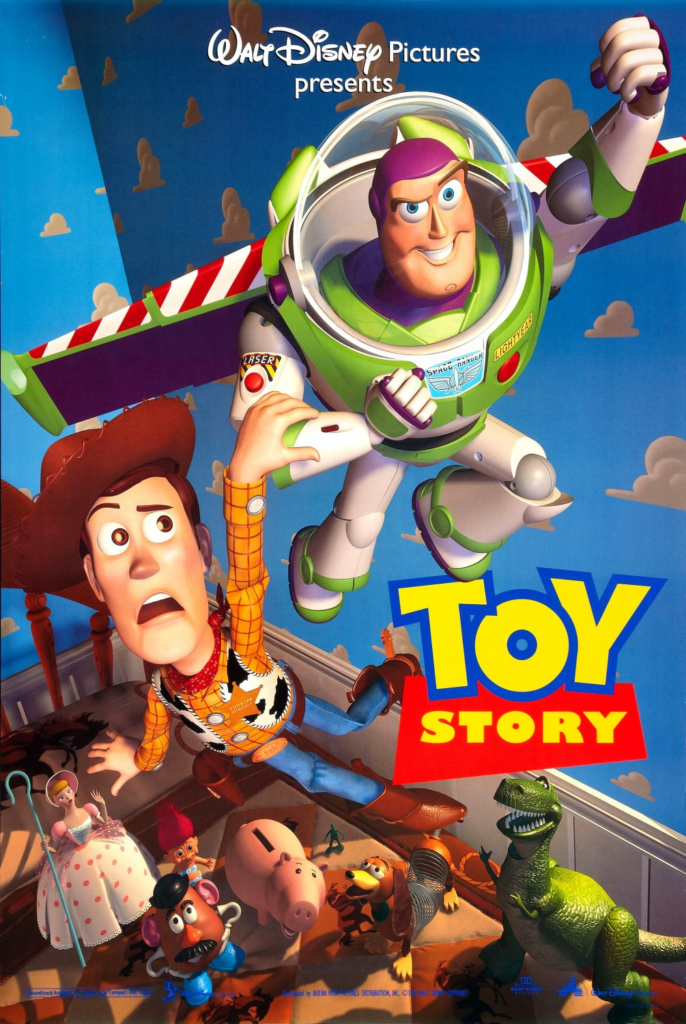Toy Story Christian Review

When Toy Story hit the big screens in 1995, it wasn’t just another animated movie. It was a phenomenon, a revolution in storytelling, and a dazzling leap forward in animation technology. It felt new and magical, yes, but also deeply comforting in its universal themes. And as Christians, there’s even more to glean from this cinematic gem. Underneath the humor and groundbreaking visuals lies a tale of identity, friendship, and selflessness that aligns beautifully with the teachings of faith. Let’s take a closer look, peeling back the layers of this animated classic.
Playthings with Purpose: What’s in a Toy?
The story kicks off in Andy’s cozy suburban room, a space that’s more than just a backdrop—it’s a microcosm of purpose and belonging. The toys come alive, not just literally but also metaphorically, as they navigate what it means to serve their “master” Andy. For Woody, the sheriff and self-appointed leader of the group, life is about being Andy’s favorite, a position he guards jealously.
And then, enter Buzz Lightyear. The flashy, deluded space ranger who believes he’s a real galactic hero. Buzz disrupts Woody’s carefully curated world, throwing the cowboy into a spiral of envy and fear. For Christians, this setup resonates with the tension between pride and humility. It’s a reminder of Proverbs 16:18—”Pride goes before destruction, a haughty spirit before a fall.”
But Buzz’s journey is equally compelling. When he discovers he’s “just a toy,” his existential crisis mirrors our own struggles with identity. How often do we place our worth in titles or roles, only to be reminded that true value comes from something deeper? For Buzz, it’s realizing he’s part of a community, a beloved member of Andy’s family. For us, it’s recognizing that our identity is rooted in Christ.
Friendship Forged in Adversity: From Rivals to Brothers
The rivalry between Woody and Buzz is the engine that drives Toy Story. Woody’s jealousy blinds him, leading to some morally questionable actions. He shoves Buzz out of a window in a desperate bid to reclaim his status. It’s messy, raw, and oh-so-human. Yet, even in his failure, Woody’s story becomes one of redemption.
As the two embark on their misadventures—escaping a sadistic neighbor and reconciling their differences—they learn to trust and sacrifice for each other. It’s a dynamic that calls to mind John 15:13: “Greater love has no one than this: to lay down one’s life for one’s friends.” Woody and Buzz embody this sacrificial love as they grow from adversaries to allies, their bond deepening through shared trials.
The Bigger Picture: Service and Selflessness
While Toy Story is a tale about toys, its lessons transcend its plastic protagonists. The toys find fulfillment not in their own glory but in serving Andy. It’s a beautiful illustration of Colossians 3:23—”Whatever you do, work at it with all your heart, as working for the Lord, not for human masters.” Their joy comes from bringing joy to another, reflecting the biblical call to love and serve selflessly.
Woody’s character arc underscores this. He moves from self-centeredness to a recognition of the greater good. By the end, he’s no longer obsessed with being Andy’s favorite. Instead, he embraces his role as part of a team, willing to put Buzz’s well-being above his own. This transformation is a powerful reminder that true greatness lies in humility and service.
Community and Diversity: A Toybox Full of Personalities
Andy’s room is a vibrant ecosystem, each toy bringing something unique to the table. There’s the loyal Slinky Dog, the sarcastic Mr. Potato Head, and the gentle yet anxious Rex. Together, they form a community that thrives on their differences. It’s a reflection of 1 Corinthians 12:12-14, where Paul describes the body of Christ as made up of many parts, each with a vital role.
This sense of community is a cornerstone of Christian life. Just as the toys band together to rescue Woody and Buzz, we’re called to support one another in faith. It’s a celebration of unity amidst diversity, a reminder that we’re stronger together.
Innocence, Wonder, and the Spirit of Childhood
Beyond its deeper themes, Toy Story captures something profoundly simple: the joy of childhood. Andy’s imaginative play and the toys’ adventures reflect a world unburdened by cynicism. As Christians, we’re reminded of Jesus’ words in Matthew 18:3—”Truly I tell you, unless you change and become like little children, you will never enter the kingdom of heaven.”
There’s a purity to Andy’s love for his toys, a glimpse of the kind of unselfish, wholehearted devotion we’re called to have toward God. Watching Toy Story can inspire us to approach our faith with a similar sense of wonder and trust.
A Technological Triumph with a Human Heart
Of course, we can’t talk about Toy Story without acknowledging its groundbreaking animation. As the first feature-length film created entirely with CGI, it’s a testament to human creativity and ingenuity—gifts that reflect our Creator. Genesis 1:27 reminds us that we’re made in God’s image, and Toy Story is a shining example of how we can use that creativity to tell stories that inspire and uplift.
But what sets Toy Story apart isn’t just its technical brilliance; it’s the depth of its storytelling. The script crackles with wit and charm, balancing humor with heartfelt moments. The characters feel real, their struggles and triumphs resonating with audiences of all ages. It’s a reminder that great art doesn’t just entertain—it connects us to universal truths.
Lessons in Failure and Redemption
No story is complete without conflict, and Toy Story doesn’t shy away from the messiness of failure. Woody’s jealousy leads him down a dark path, but it’s his willingness to acknowledge his mistakes and make amends that defines his growth. It’s a journey that echoes the biblical concept of repentance and redemption.
Proverbs 28:13 says, “Whoever conceals their sins does not prosper, but the one who confesses and renounces them finds mercy.” Woody’s transformation is a testament to the power of humility and grace. His failures don’t define him; his response to them does.
The Eternal Appeal of Toy Story
Nearly three decades after its release, Toy Story remains a beloved classic. Its humor, heart, and groundbreaking animation have stood the test of time, resonating with new generations of viewers. But beyond its entertainment value, it offers profound lessons on friendship, purpose, and faith.
For Christian audiences, Toy Story is more than just a movie. It’s a reminder that even in the simplest stories, we can find reflections of God’s truth. It challenges us to love selflessly, serve faithfully, and embrace the wonder of God’s creation. And isn’t that what great storytelling is all about?
Rating: 9/10
While it may not explicitly reference faith, Toy Story aligns with many Christian values, making it a delightful and meaningful experience for viewers of all ages. It’s a testament to the power of storytelling and a celebration of the themes that unite us all.



